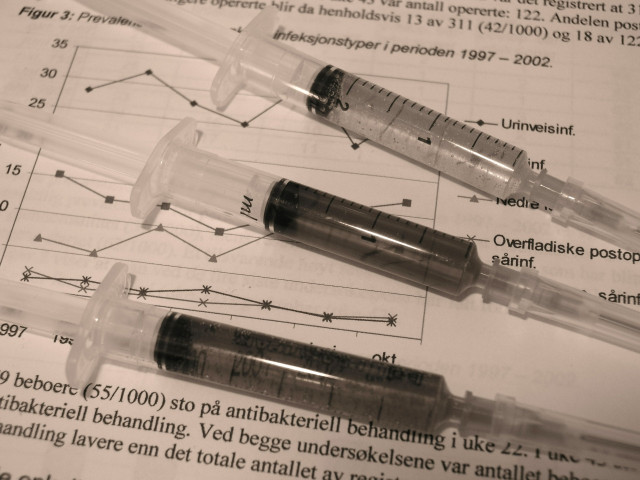Preventive measures: Jinnah hospital holds seminar on infectious epidemics
Prevention is more relevant than cure in third world countries.

Preventive measures must be adopted and applied in healthcare settings to avoid the outbreak of infectious epidemics such as severe acute respiratory syndrome (SARS) in Pakistan. This was highlighted at a seminar on the ‘Infection Control and its Prevention’ held at the Jinnah hospital on Sunday evening.
Health experts warned that unhygienic surroundings in hospitals and clinics were responsible for the spread of infectious diseases such as SARS and viral hemorrhagic fevers such as Ebola and only preventive measures can stop these diseases from spreading.
The seminar was organised by the students of Dow University of Health Sciences in collaboration with the Jinnah hospital’s Hepatitis Advisory Board and the Rural Supporting and Development Society (RSDS).
Pakistan Medical Research Council’s Dr Huma Qureshi said that a recent threat of infectious diseases has put pressure on healthcare workers to strictly follow infection control and preventive practices.
The healthcare workers have to protect their patients and the general public from the outbreak and spread of infections. The education, awareness and training of health workers about infection control will benefit everyone. She said that third world countries cannot afford huge investments in the development of vaccinations.
The RSDS joint secretary, Sehar Sameen, said that life-threatening infections such as Ebola, Marburg viral infections and SARS are on the rise and we can only fight them by adhering to universally followed practices.
The relevance of prevention over cure is very high in societies like ours, which have high rates of population, illiteracy and disease. She concluded by saying that “Prevention is the only feasible option in Pakistan due to the limited resources we have for research and development.”
Published in The Express Tribune, June 28th, 2011.



















COMMENTS
Comments are moderated and generally will be posted if they are on-topic and not abusive.
For more information, please see our Comments FAQ